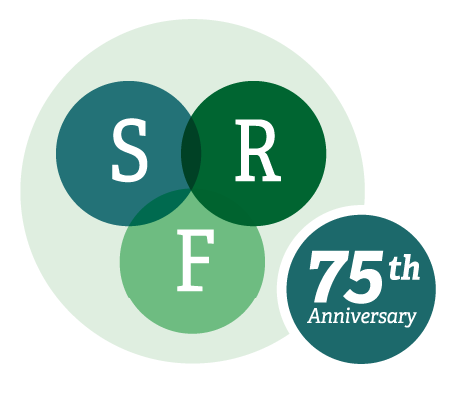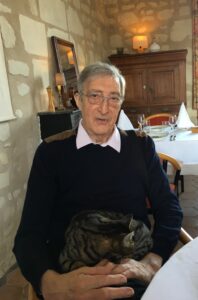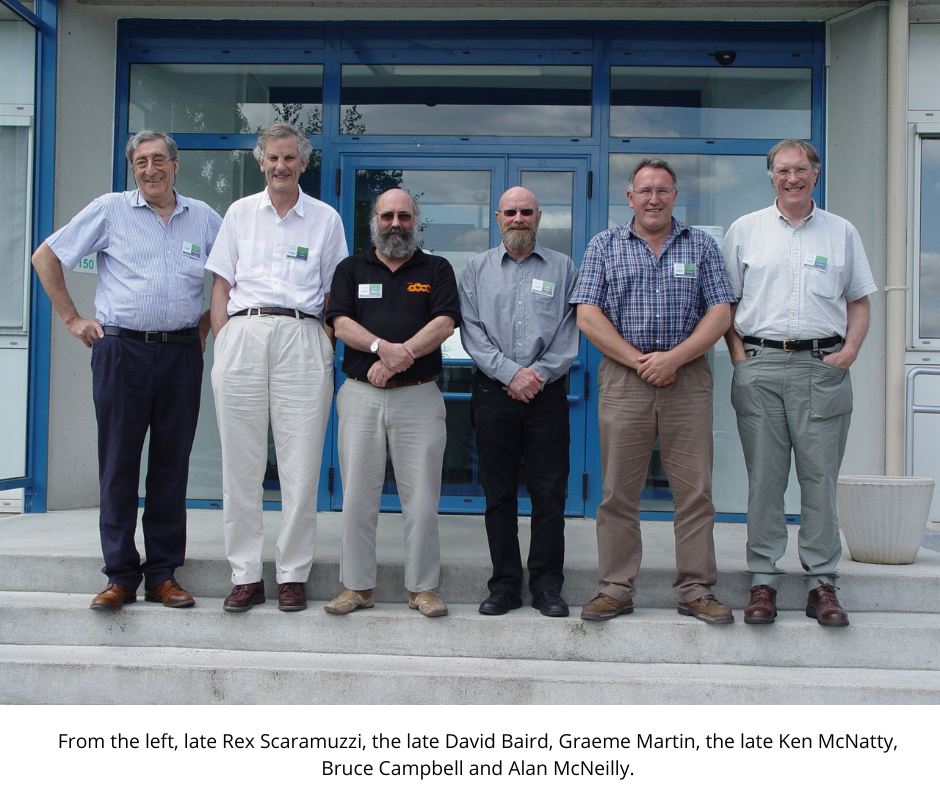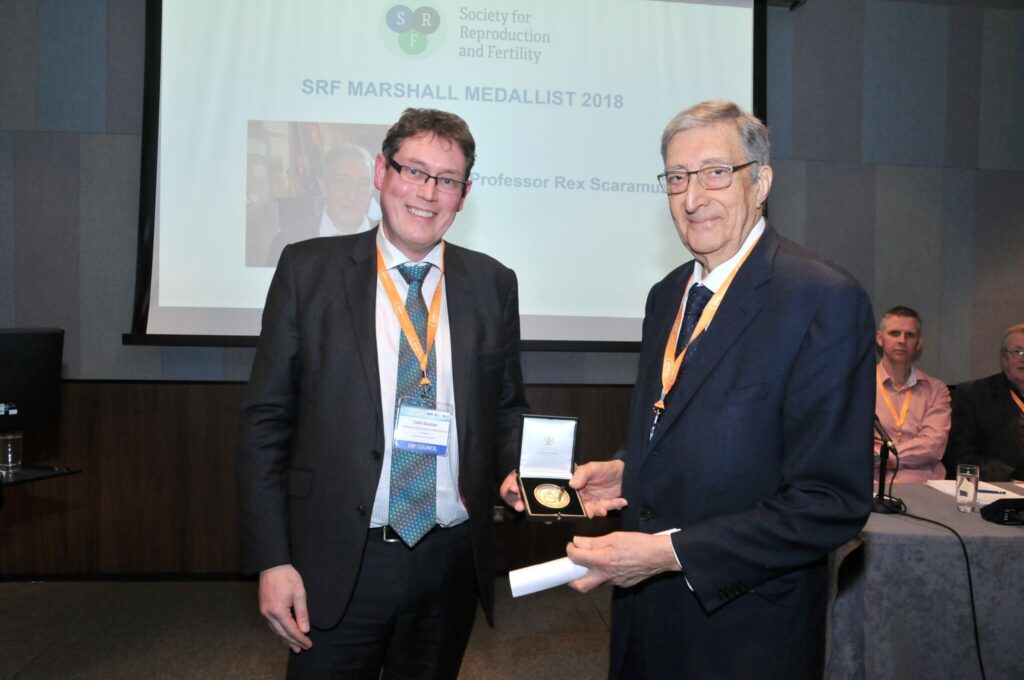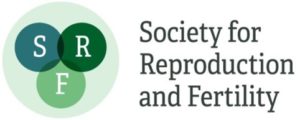Rex was born in New South Wales to Italian immigrants, but nevertheless grew up with a love of cricket and rugby. His father was an orchardist, so he also developed an interest in agriculture that he was able to foster at Sydney University from where he gained a BSc (Agric) in 1965. In 1969, he followed up with a PhD on the hormonal regulation of mating behaviour in the sheep, under the supervision of the legendary Terry J Robinson and a young David R Lindsay.
With the help of a Ford Foundation Post-Doctoral Scholarship, he went on to a postdoctoral position at the Worcester Foundation for Experimental Biology in Massachusetts, and then became a Post-Graduate Research Anatomist in the UCLA School of Medicine in California.
At that point, he was convinced by the late David Baird to become a Scientific Officer in the MRC Unit of Reproductive Biology and Department of Obstetrics and Gynaecology (University of Edinburgh). He held this position from 1972 until 1975, after which he was attracted back to Sydney to join CSIRO, where he stayed for 18 years.
In 1993, he took up the position of Professor of Veterinary Physiology in the Royal Veterinary College, University of London. In 2007, he won a highly competitive Marie Curie Fellowship that allowed him to work in the L’Institut National de la Recherche Agronomique in Nouzilly, France. In 2010, he retired and continued to live in France, although he held Adjunct Professorships at the University of London and the University of Western Australia.
He was a productive scientist and published more than 300 research publications, including 35 invited review papers and chapters, and more than 200 refereed papers in international journals. He also held 4 patents and provisional patents. He was an Honorary Life Member of The Endocrine Society (USA), The Society for Endocrinology (UK), The Society for Reproduction and Fertility (UK) and The Society for Reproductive Biology (Australia).
In 2018, the SRF awarded him the Marshall Medal. He was really chuffed with the recognition.
Among his important contributions was the initiation of two regular international meetings, the biggest being the Ruminant Reproduction Symposium, a major symposium that focuses on sheep, cattle and goats. The first was held in 1980 in New South Wales. Since then, this meeting has been held every 4 years or so, most recently in Ireland.
The second meeting is a smaller and more intimate workshop that focusses purely on the ovarian follicle of cows and sheep. Only a dozen or so people are invited and, over a few days, they are given the task of forming a consensus of the state of knowledge of a tissue that is central to farm animal productivity. These meetings have been far less frequent – the first was held in New South Wales in 1992, the second in France in 2008, and the third in New Zealand in 2020.
For the New Zealand meeting, Rex was not well enough to travel half-way around the world but he sent a video so the group could see his passion for the topic and the workshop. There have been only three meetings in 30-odd years, but each one produced a major consensus paper, all published in Reproduction, Fertility and Development, that offered a foundation for research and, I am sure, university courses. The papers can be found at DOIs: 10.1071/RD9930459; 10.1071/RD09161; 10.1071/RD21086. The list of authors, all of whom will be familiar to SRF members, tells the tale of this field over 30 years.
Both of these meetings will go on in perpetuity and therefore form a major part of Rex’s legacy. As will his 27 postgraduate students … those he supervised in Australia, the UK and France … went on to forge important careers of their own.
For me personally, Rex has been a mentor, collaborator, and very close friend of nearly 50 years, beginning during my PhD studies. Rex and I have shared science adventures, holidays, restaurants, wine, cheese, fast cars, and countless dinners with friends and family. I miss him deeply.
Graeme Martin
